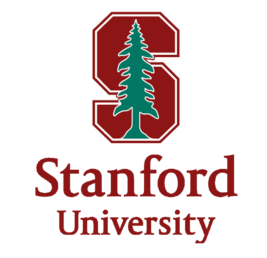Important Info
Please email Prof. Sindy Tang (sindy@stanford.edu(link sends e-mail))
Project Overview:
We are seeking a highly motivated and innovative postdoctoral researcher to lead the development of an automated platform for microscale tissue dissection, based on our recently published µDicer device (https://www.nature.com/articles/s41378-024-00756-8(link is external)). The µDicer enables high-throughput dicing of tissue into microtissues. This position will contribute to NIH-funded projects focused on generating tumor organoids for cancer immunotherapy testing, and enabling spatial proteomics workflows through spatially resolved microtissue dissection. Our goal is to transform the current manual µDicer workflow into a fully automated system that integrates tissue handling, precision alignment, force-controlled dicing, and imaging-based spatial mapping of input-output relationships.
Key Responsibilities:
- Design and build a benchtop instrument to automate tissue placement, alignment, dicing, and collection.
- Integrate motion control systems (e.g., linear actuators, XY stages) and imaging hardware (e.g., cameras, microscopes).
- Develop control software for coordinated mechanical and imaging operations (Python, LabVIEW, or similar).
- Implement image analysis pipelines for tissue mapping and registration before and after dicing.
- Interface with biologists and clinicians to validate the system using real tissue samples.
- Document progress and contribute to publications.
What We Offer :
- A highly interdisciplinary research environment with collaborations across engineering, biology, and medicine.
- Access to state-of-the-art fabrication and imaging facilities.
- Opportunities for publishing, presenting at top-tier conferences, and participating in translational efforts
- PhD in mechanical engineering, bioengineering, robotics, or a related field.
- Hands-on experience in mechatronics, motion control, or robotic systems.
- Proficiency in programming for hardware control (e.g., Python, MATLAB, LabVIEW, C++).
- Experience with 3D CAD design (e.g., SolidWorks or Fusion 360) and prototyping tools.
- Familiarity with microscopy and imaging systems (brightfield, fluorescence, or stereomicroscopy).
- Strong data analysis skills, including image processing (e.g., OpenCV, scikit-image, ImageJ).
- Demonstrated ability to independently develop and troubleshoot complex instrumentation.
Preferred Skills:
- Experience with microfluidics, particularly in systems for cell or tissue manipulation, transport, or sorting.
- Familiarity with soft tissue handling, microtome sectioning, or histological workflows.
- Prior work in biomedical sample prep automation, high-content imaging, or organoid handling.
For questions or applications (see below), please feel free to reach out to Prof. Sindy Tang (sindy@stanford.edu(link sends e-mail)).
Application:
Please email in a single PDF including:
- CV with publication list
- A 1/2 to 1-page summary of research accomplishment, why you are interested in this project, how you would approach the problem (we welcome details including figures), and your expected contributions
- Contact information of 3 references
- Links to 2–3 representative publications and a portfolio of relevant projects (e.g., devices, systems, instruments, or tools you’ve built)


